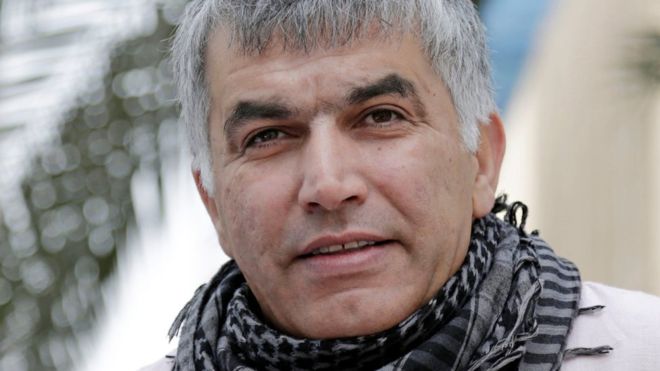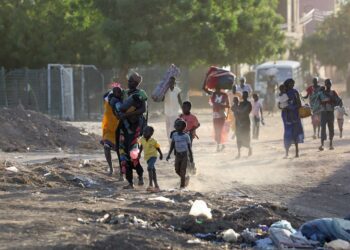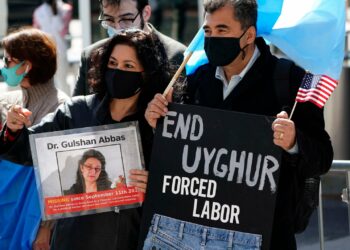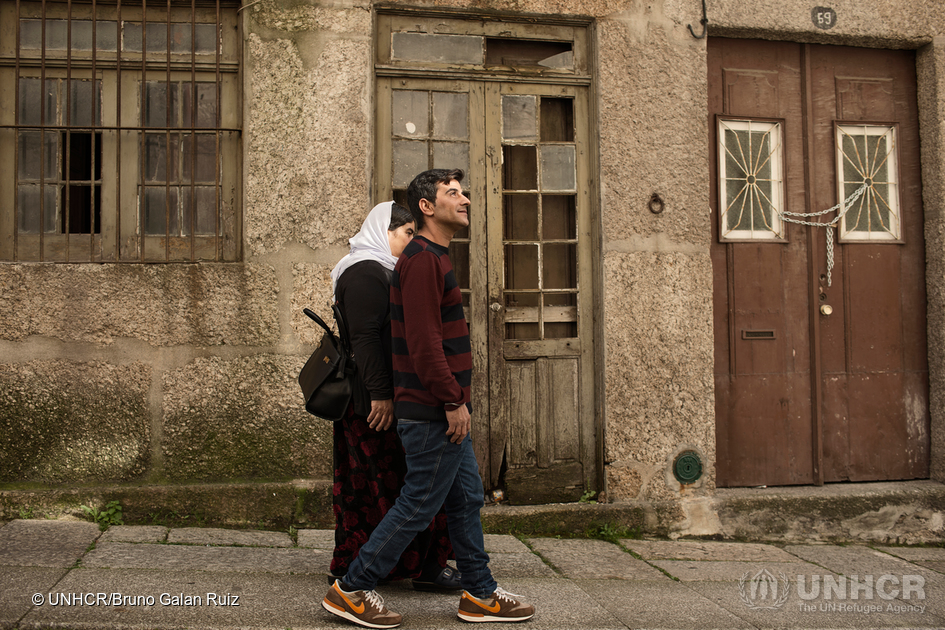International rights groups said Thursday they fear for the health behind bars of Bahrain’s most high-profile activist, Nabeel Rajab, slamming the Gulf state over its seven-year crackdown on dissent.
Mr. Rajab, a leading figure in 2011 protests that erupted in Bahrain, was sentenced to two years in jail last July for “disseminating rumours and false information” in television interviews critical of the government.
He also faces a potential 15-year sentence in a second case linked to tweets in which he criticised Saudi Arabia and its allies, including Bahrain, over their military intervention in the Yemen war.
A statement released by regional rights group, the Gulf Center for Human Rights, the World Organisation Against Torture (OMCT) and the International Federation for Human Rights (FIDH) said the Bahraini government had denied healthcare to and “detained, imprisoned, tortured… or forced into exile” a number of prominent dissidents.
The organisations said they had evidence Manama had withheld medication for Mr. Rajab, who has been hospitalized multiple times in recent years, “in a clear attempt to threaten his security and integrity.”
Bahraini officials were not immediately reachable for comment.
HRF condemns the decision by Bahrain's Court of Cassation to uphold human rights activist Nabeel Rajab's two-year prison sentence.https://t.co/E5gfM6Qevm
— Human Rights Foundation (@HRF) January 15, 2018
“Recently alarming signals have multiplied raising security concerns regarding his detention condition,” said Dimitris Christopoulos, president of FIDH, an international consortium of 184 non-governmental organisations from around the world.
“The government should put a stop to these tactics, and immediately release him. We seriously fear for his life”.
Located between Saudi Arabia and its arch-rival Iran, Shiite-majority Bahrain has been ruled for more than 200 years by the Sunni Al-Khalifa dynasty. The kingdom is home to the U.S. Navy’s Fifth Fleet and a British military base that is still under construction.
Since 2011, authorities have jailed dozens of high-profile activists and disbanded both religious and secular opposition groups. They have also stripped hundreds of their citizenship, making many stateless, according to Amnesty International.
The government has drawn harsh criticism from rights groups, including Amnesty and Human Rights Watch, over its treatment of protesters and prisoners.
The Bahrain government accuses Iran of backing the protests and attempting to overthrow the government. Tehran denies involvement.





















